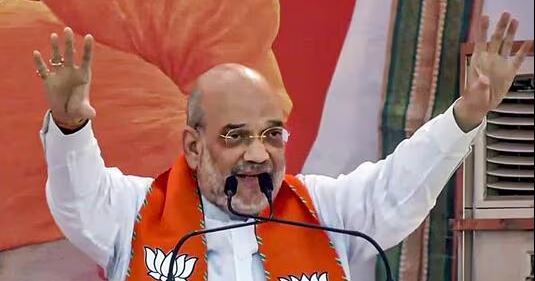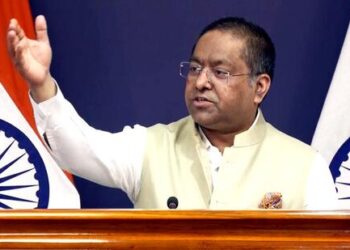Union Home Minister Amit Shah claimed that former Prime Minister Rajiv Gandhi was against the implementation of the Mandal Commission report. Shah made these remarks during a public address, reigniting discussions on the historical stance of the Congress party regarding reservations and affirmative action.
Amit Shah, a key figure in the Bharatiya Janata Party (BJP), spoke about Rajiv Gandhi’s purported resistance to the Mandal Commission’s recommendations, which advocated for reservations for Other Backward Classes (OBCs) in government jobs and educational institutions. The Mandal Commission report, submitted in 1980, stirred widespread debates and protests, eventually leading to the acceptance of its recommendations in 1990.
Shah, addressing the audience, stated that the BJP has consistently supported the cause of social justice and empowerment of marginalized communities. He contrasted this with what he claimed was the Congress’s historical reluctance to embrace the Mandal Commission’s proposals, suggesting that the BJP has been a more proactive force in championing the cause of social inclusivity.
The Union Home Minister’s comments have sparked reactions from political circles, with leaders from various parties weighing in on the historical perspective of reservations in India. Critics argue that Shah’s statements are aimed at reshaping political narratives, especially in the context of upcoming elections, by presenting the BJP as a party committed to the welfare of backward communities.
The Congress party has yet to officially respond to Amit Shah’s assertions. However, political observers anticipate that this revelation will prompt discussions on the historical positions of political parties regarding reservations and affirmative action policies.
The Mandal Commission, headed by B.P. Mandal, was constituted in 1979 to identify and recommend measures for the advancement of socially and educationally backward classes. Its recommendations, though initially met with resistance, were eventually implemented, leading to significant changes in the socio-political landscape of the country.
As Shah’s statement adds a new layer to the ongoing political discourse, it remains to be seen how political parties and leaders navigate discussions around historical decisions and their impact on contemporary political dynamics.








 India
India












